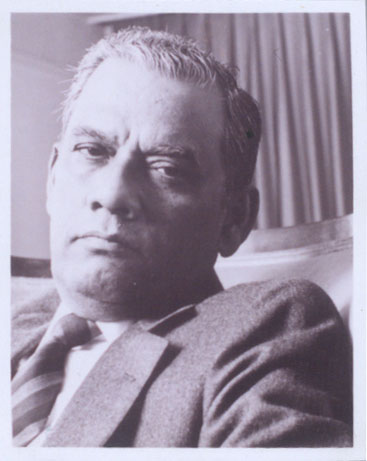Mr. A.K.N. Ahmed Former Governor, Bangladesh Bank

Abul Khayer Naziruddin Ahmed, widely known as A. K. N. Ahmed (Selim), was the 2nd Governor of Bangladesh Bank, serving from November 19, 1974, to July 13, 1976. A distinguished central and development banker, A. K. N. Ahmed had a 40-year career that included key roles in various institutions.
Mr. Ahmed commenced his international career with the World Bank in the early 1950s. Transitioning to the mid-1960s, he took on the position of Deputy Managing Director at the Industrial Development Bank of Pakistan (IDBP), later renamed Bangladesh Shilpa Bank (BSB).
Beginning as a 1st Class Officer at the 'State Bank of Pakistan,' he progressed to the position of secretary, handling foreign currency management. Notably, he held the highest position in East-Pakistan within the State Bank and subsequently became the General Manager in Khulna. Recognized for his innovative contributions, he earned a promotion to the role of Executive Director in 1970.
During the 1971 non-cooperation movement, he assumed the responsibility of the Dhaka office of the State Bank of Pakistan. Engaging in the implementation of directives from Bangabandhu Sheikh Mujibur Rahman, he was subsequently relocated to Karachi, evading arrest due to the intervention of the State Bank of Pakistan's Governor. Despite facing two interrogations in Lyallpur (currently Faisalabad) Jail and pressure to testify against Bangabandhu, he managed to escape from Pakistan to Bangladesh in March 1973, marking a pivotal moment in his journey. In 1973, he became the Chairman and Managing Director of Sonali Bank in Bangladesh.
In 1980s, he assumed the role of Chief Economist for the Bank of Credit and Commerce International (USA), followed by serving as the High Commissioner of the People's Republic of Bangladesh in Japan and South Korea in the mid-1980s. Later, he represented the International Monetary Fund (IMF) as the Resident Representative in Gambia. Mr. Ahmed's advisory roles extended to BCCI Bank, where he played a pivotal role in establishing the BCCI Foundation and BASIC Bank. His leadership as the Chairman of BASIC Bank contributed significantly to its profitability over two decades, and he further served as an advisor to the Presidential Commission of Finance and Banking in Sri Lanka. He was a senior fellow of Bangladesh Institute of Development Studies (BIDS), fellow of Center for Policy Dialogue (CPD), fellow of Institute of Bankers in Pakistan and Bangladesh and Emeritus Fellow of Bangladesh Institute of Bank Management (BIBM).
In 1946, Mr. Ahmed earned a Bachelor of Economics degree from the Presidency College under the University of Calcutta. He later pursued a Master's program at the University of Dhaka.
Mr. Ahmed made notable contributions during his tenure as Governor of Bangladesh Bank. His achievements included the demonetization of the 100-taka note, measures to control inflation, and initiatives for agricultural loans, rural credit, micro-credit, and school banking. Additionally, he initiated the formation of the first private financial institution in Bangladesh, IFIC, and appointed the inaugural batch of officers in Bangladesh Bank in 1976 amid challenges. His singular responsibility for establishing the Bangladesh Institute of Bank Management (BIBM) as its first chairman highlighted his commitment to the development of banking education.
Mr. Ahmed received the Alexander the Great gold medal from the Institute of Oriental Philosophy, Soka Geiki University, Tokyo, for his profound knowledge of Japanese culture and society. Additionally, an auditorium at the Bangladesh Bank Training Academy (BBTA) was named after him.
Mr. Ahmed underwent training at the World Bank, showcasing remarkable performance. He launched a campaign for ethical banking, contributing to the establishment of the 'Nurul Matin Memorial Lecture on Ethics in Banking' at BIBM. He authored 11 books and numerous articles, addressing economic issues and global perspectives. Some of his writings have also been included by IMF in its bibliography of central banking. He also delivered lectures in Kansas University, USA and SEANZA Central Banking Course as a Visiting Specialist in 1987.
Born on September 23, 1930, in 'Rasullahbad' village of Brahmanbaria District, he passed away on February 24, 2016, in Washington, USA. He was married to Nilufar Ahmed (Bina) and had two daughters, 'Ramina' and 'Deepa,' and a son 'Ruben'.